Swiss Startup Yeastup Turns Beer Industry Waste into High-Value Protein and Fibre
Yeastup’s upcycling process and growth potential have attracted the attention of green-centric investors.
10 March 2025
Share this exclusive content from Saladplate
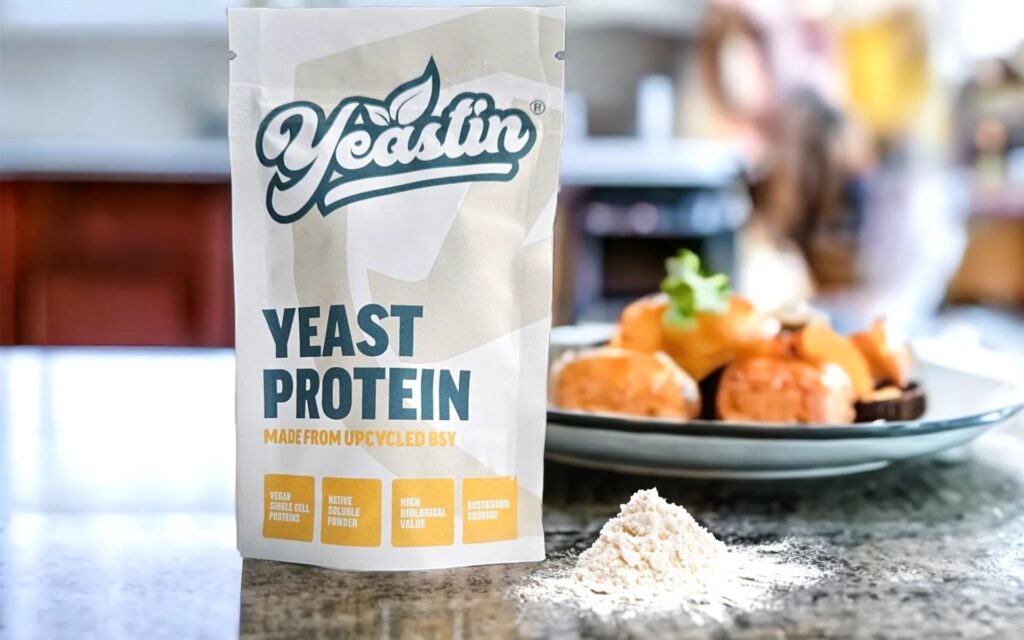
Photo caption: Yeastup has developed an innovative process to upcycle spent beer brewers’ yeast into high-quality proteins and fibres. | Photo credit: Yeastup
Yeast is a microorganism that has shaped food production since ancient Egypt’s bread-making and has just got its second wind.
Swiss startup Yeastup’s innovative, patent-pending method for repurposing spent brewers’ yeast into high-value products has not only attracted the attention of investors worldwide but it also holds remarkable potential for scale.
Aiming to make a real contribution to sustainability and the promotion of a circular economy, Yeastup has unlocked yeast’s hidden potential by creating a cost-efficient method to upcycle beer industry waste into nutritional proteins and dietary fibres for the food and beverage, and even cosmetic industries, that are sustainable and animal-free.

Photo caption: Yeastup founders Urs Briner (left) and Daniel Gnos (right) have been aware of the nutrient density of spent brewers’ yeast for a while and have finally turned their vision into reality. | Photo credit: Yeastup
Turning Heads In The Green Space
In 2023, Yeastup started to gain global recognition when it won SEIF’s Award for Social Innovation.
In December 2024, Yeastup closed a US$ 9.9 million Series A round of investments from venture capital entities, including environmentally conscious groups such as Beyond Impact and Newtree Impact. Founded in 2020 by Daniel Gnos, an experienced brewery entrepreneur, and Urs Briner, a former IBM executive, the duo has since focused on refining their product. Further, by collaborating with food and cosmetics manufacturers, they tailor make specialised compounds and blends to perfect their portfolio.
“I have been aware of the incredible nutrient density in spent brewer’s yeast for a long time,” co-founder Daniel Gnos explained. “To me, seeing these powerhouses being used only as animal feed or being disposed of was a senseless waste of highly valuable resources. Together with my co-founder Urs Briner and our team, I want to make an effective contribution to the protein supply for a steadily growing world population – and, at the same time, advocate sustainability, upcycling and a functioning circular economy.”
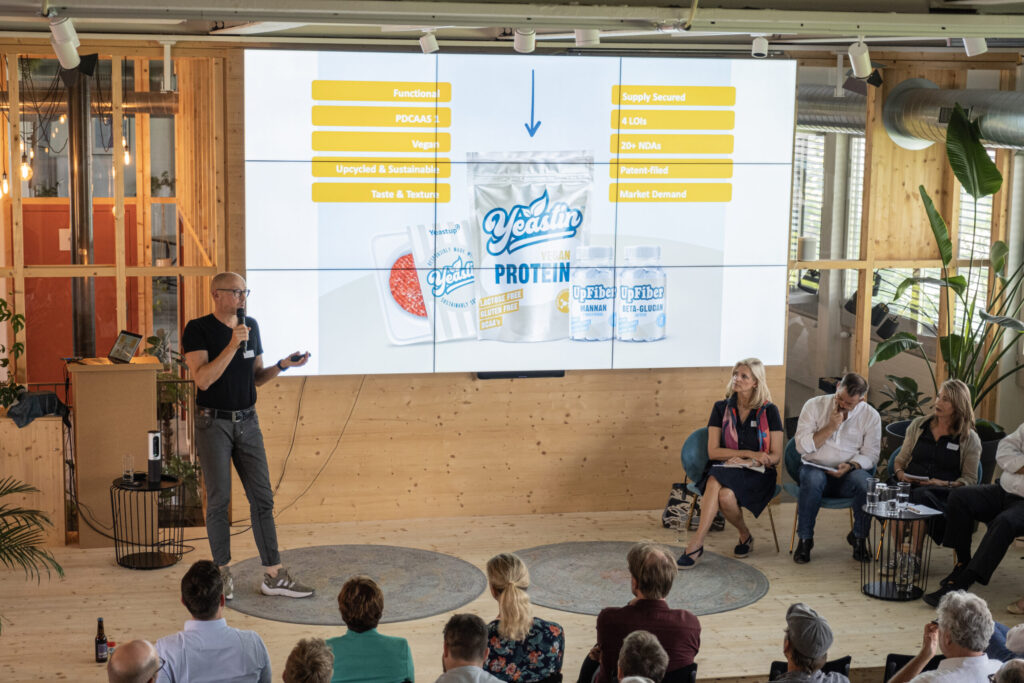
Photo caption: Yeastup co-founder Urs Briner discusses his company’s achievements at the SEIF Awards ceremony in 2023. | Photo credit: SEIF.org
This most recent round of investments is an encouraging boost to the market confidence around Yeastup’s latest upscaling efforts. The capital will be used to transform a former Cremo dairy factory to manufacture food, nutraceutical and cosmetic ingredients from up to 2,000 tonnes of spent brewer’s yeast annually, leveraging top-standard equipment while requiring limited capital expenditure, as reported in Green Queen.
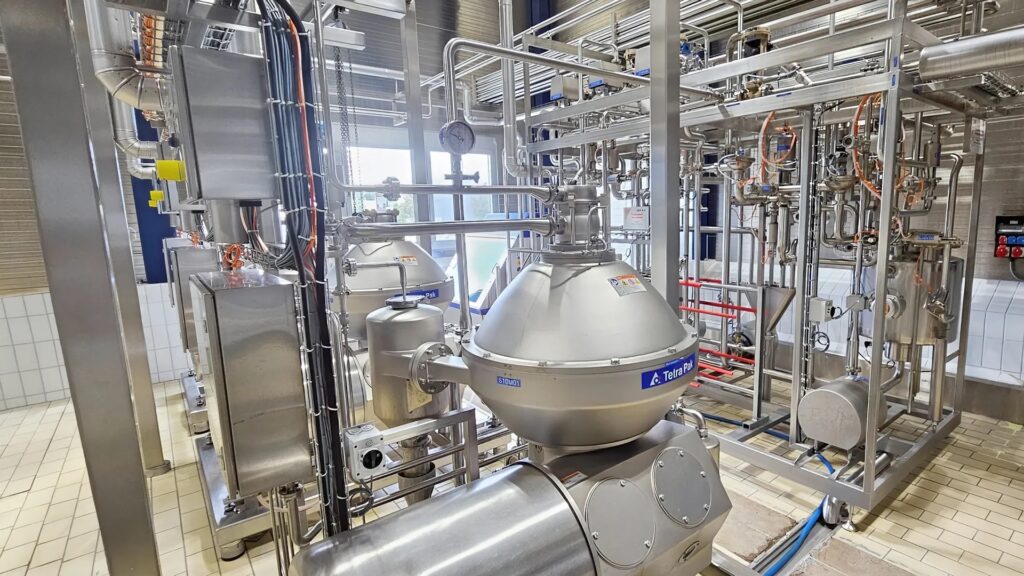
Photo caption: Yeastup’s patent-pending process extracts protein, beta-glucan and mannoprotein while removing unwanted elements from spent brewers’ yeast. | Photo credit: Yeastup
The Upcycling Process
Developed in collaboration with several engineering companies as well as the University of Life Sciences FHNW in Switzerland, Yeastup’s novel and exclusive upcycling process gently disrupts cell walls of spent brewers’ yeast to extract protein, beta-glucan and mannoprotein in one industrial process, all while removing unwanted elements such as bitter off-notes and natural residues. By the end of the process, vegan proteins and polysaccharides are recovered and are branded as Yeastin and UpFiber respectively.
A breakthrough vegan yeast protein, Yeastin contains several traits desired by the industry, such as excellent solubility, gelling and emulsifying properties. It has a high proportion of essential amino acids, which has been proven to directly impact muscle protein synthesis, positioning yeast protein as an ideal choice for optimal nutrition. In addition, Yeastin also impresses with its digestibility score, which is a measure of how effectively the body absorbs and utilises nutrients. Scientific studies showed that brewers’ yeast protein concentrates demonstrate a remarkable digestibility rate of 85-92% – markedly higher than other plant-based proteins, which are generally less digestible than animal proteins.
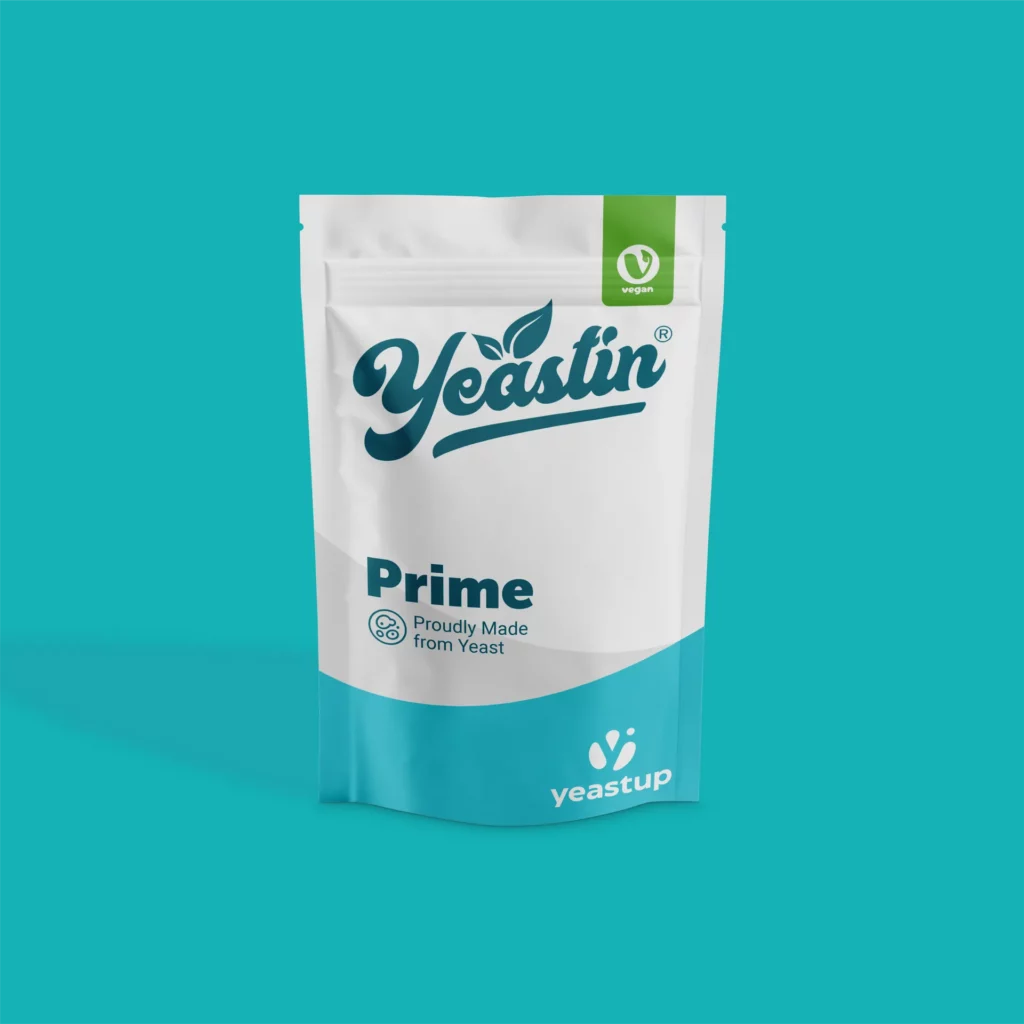
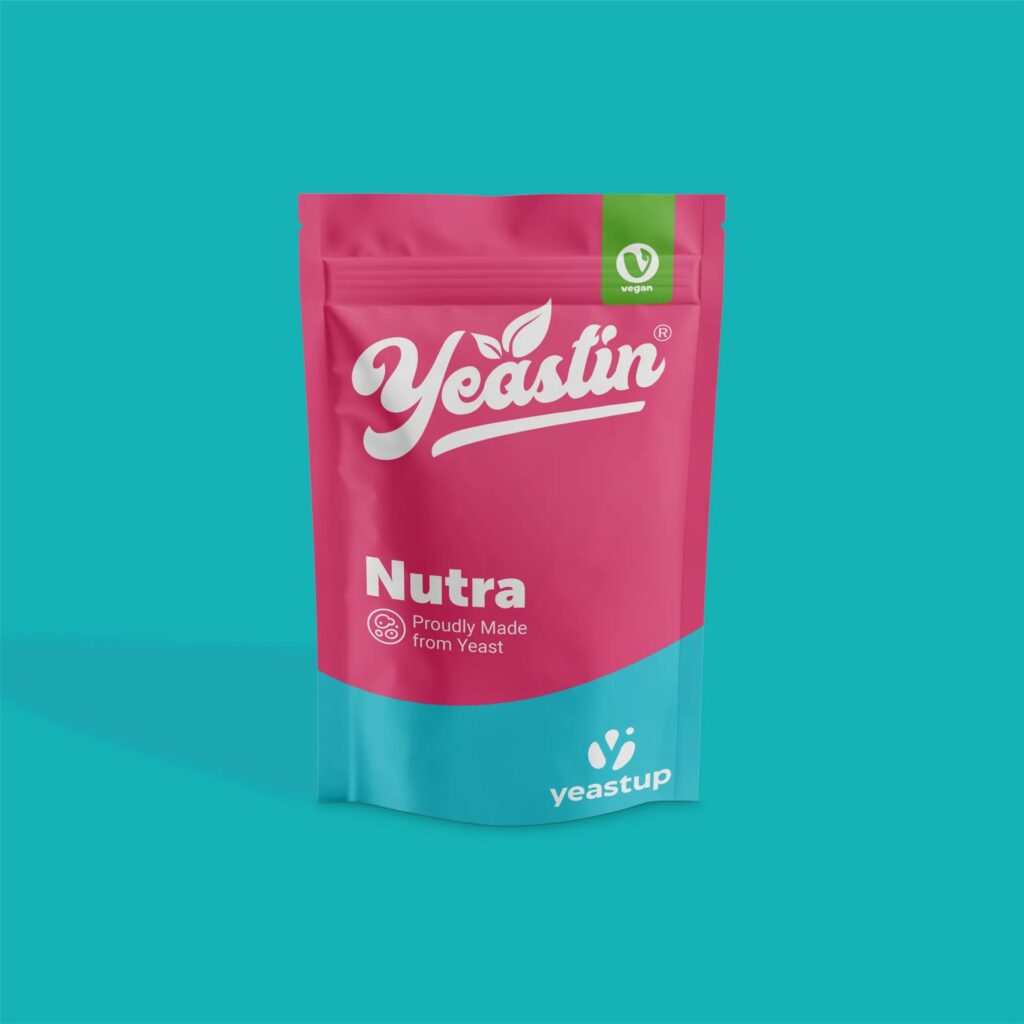
Photo caption: Yeastup offers two variations of upcycled vegan protein in their line of Yeastin products. | Photo credit: Yeastupp
Yeastup is currently focused on the B2B market, positioning Yeastin and UpFiber as brands tailored for food manufacturers instead of the direct-to-consumer market. Two variations of Yeastin are currently in production – Yeastin Prime’s superior gelling, binding and emulsifying properties make it a perfect replacement for eggs in vegan recipes, while its protein-to-fibre ratio makes it a great meat alternative in terms of texture, structure and moisture retention. Yeastin Nutra, meanwhile, is a collagen peptide alternative designed to be of the highest quality of protein of a biological value on par with animal proteins, with a complete amino acid profile. This variation is designed for protein bars and sports nutrition, which require maximum digestibility.
UpFiber is another valuable by-product of upcycling brewers’ yeast. UpFiber Beta-Glucan supports immunity and health and enhances skin protection while also being able to improve product stability and texture, while UpFiber Mannoprotein is a highly versatile ingredient for the food and beverage and cosmetics industries with high solubility and stabilising properties.
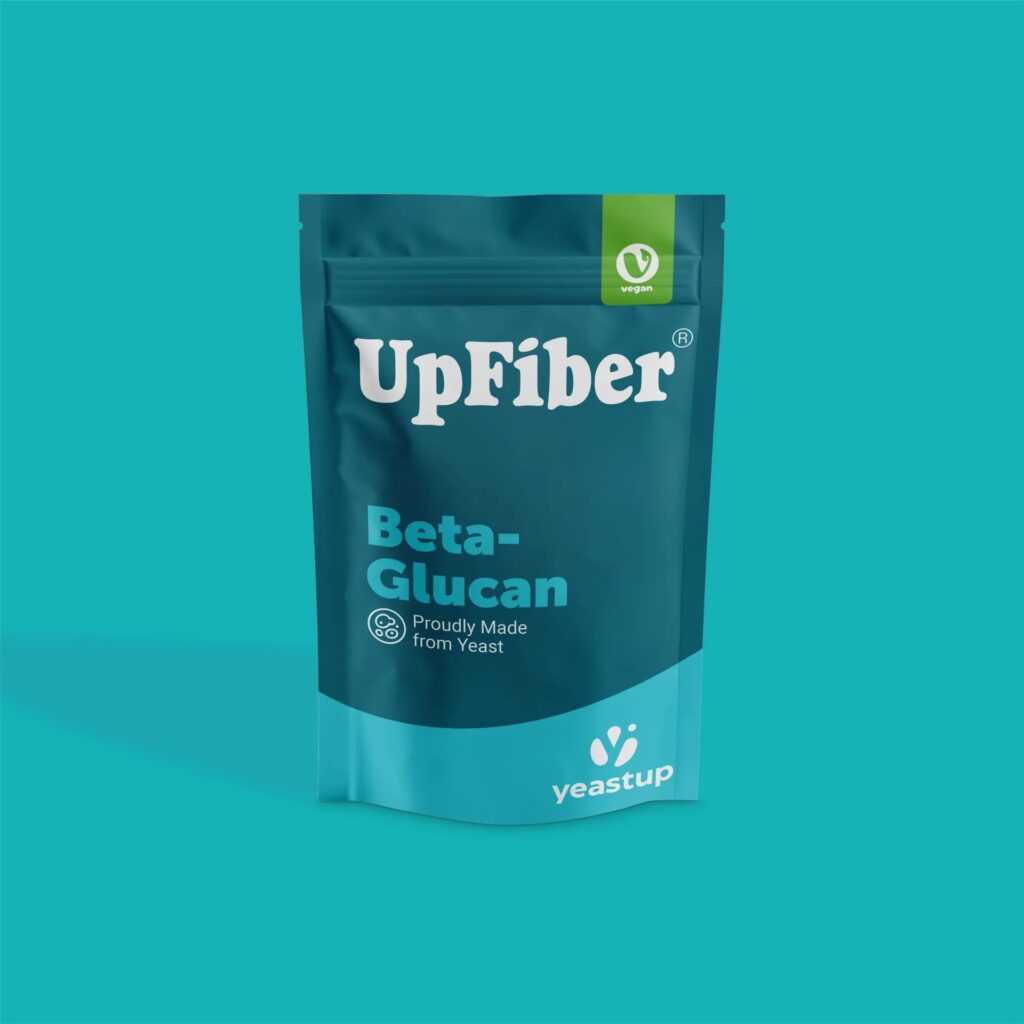
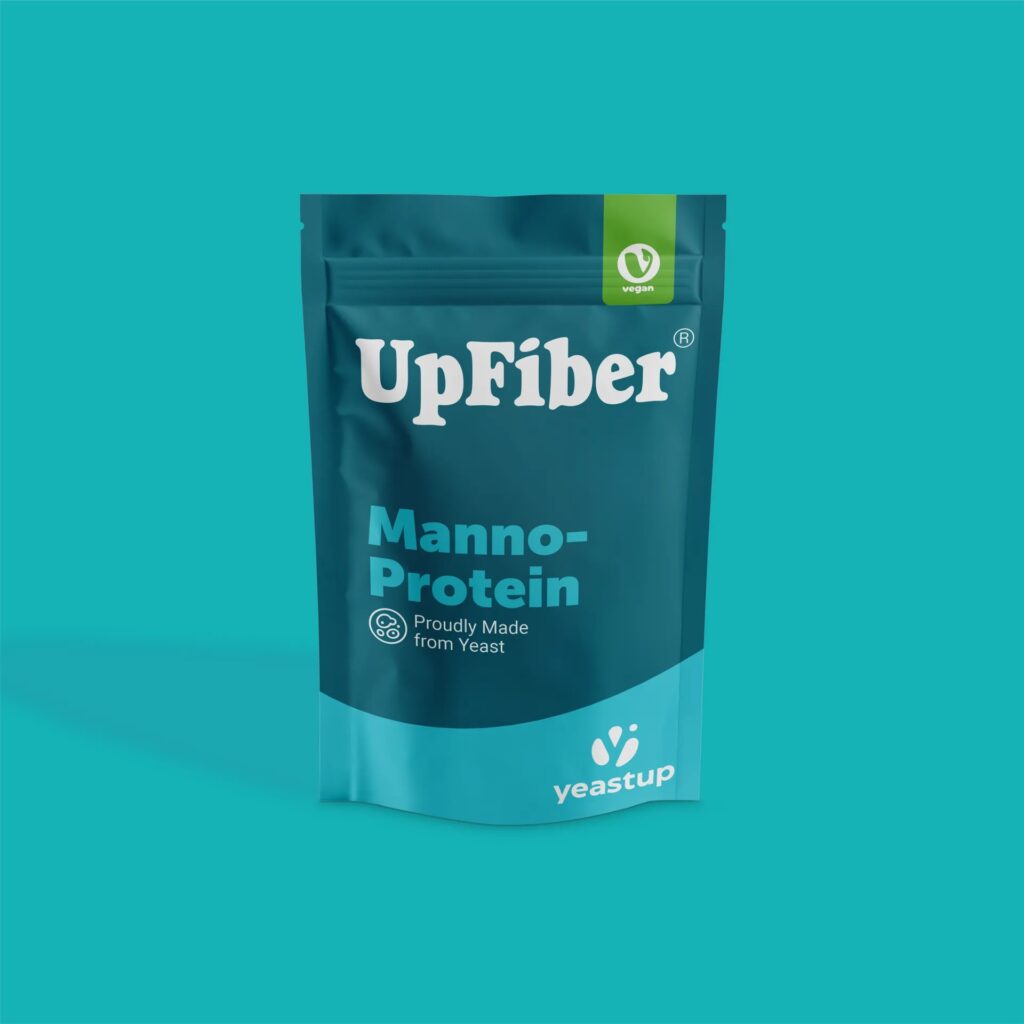
Photo caption: Polysaccharides fibre, a complex carbohydrate found mainly in plant cell walls, is recovered from the upcycling process and marketed as UpFiber. | Photo credit: Yeastup
A Fitter, Greener and Sustainable Future
Contributing to a sustainable food future is of the utmost importance to Yeastup and its founders. Industrial livestock farming now accounts for an astronomical 14.5% of human greenhouse gas emissions, and Yeastup is dedicated to narrowing the protein gap by furthering meat-alternative solutions with their products, which require neither arable land nor irrigation.
However, despite carving out a foothold in the meat-alternative and vegan sectors of the food and beverage industry, it is the sports nutrition category that Yeastup knows holds the biggest potential commercially.
“We are going first off to the segments that have the highest value – and that’s clearly the sports industry – because there, the impact on muscle and cell growth is so important,” Briner said in a 2024 interview. “They want to have a high-quality alternative protein, and they are paying for it. And there we are at the price level of whey protein.”
At present, in an exploratory phase, the production output from their new factory is primarily used for product development and sampling. Yeastup is actively seeking innovative companies in the alternative protein sector to co-develop next-generation meat substitutes.
Author: Julianna Hedger
Julianna is a seasoned content specialist who started her writing career in unscripted television production and broadcast news at FOX Sports Asia and the Associated Press. She has since added various writing skills to her repertoire, such as long-from articles, SEO-driven blogs and social media copywriting. She is driven by her personal passions in content creation, food and sports media.



